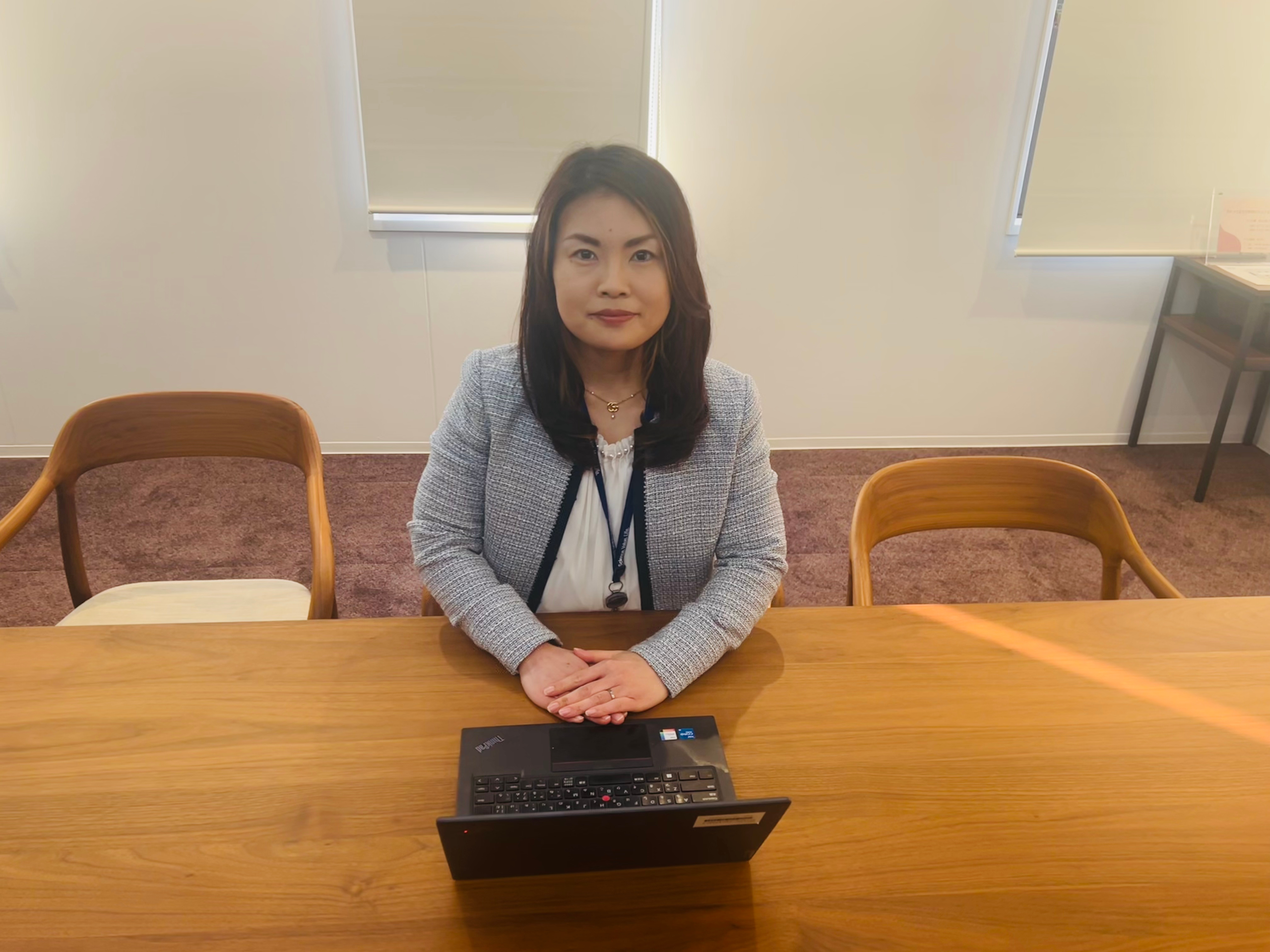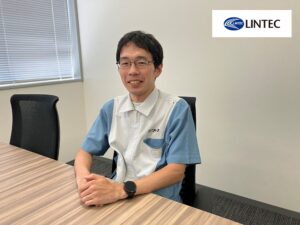akceli
Lintec’s experience with AKCELI, Why Generative AI Alone Isn’t Enough for Innovation

“Ideas grounded in evidence”, which you can’t get from ordinary generative AI, AKCELI has become a new foundation supporting early-stage R&D concepts.”
We conducted an interview with Mr. Takero Yoshinobe from Lintec Corporation’s Innovation Promotion Department to learn how they are using ACKELI to support early-stage R&D and accelerate new business development.
AKCELI (pronounced “Acceli”) is an AI service provided by NineSigma. Drawing on NineSigma’s long-nurtured know-how in innovation support, AKCELI takes a company’s technologies or products and in about five minutes proposes potential uses and external technology partners. Linted has been an active user since the service’s launch. In this interview, we asked in detail about their motivations and outcomes
Could you first tell us about your company’s business and mission?
Lintec develops and provides adhesive-related products and their associated equipment, specialty papers, release paper/release films, and so on. In the Innovation Promotion Department, where I belong, we work broadly: creating new business and new themes, exploring new applications for existing products, and also working on DC (digital transformation), AI usage, and IT environment enhancements.
In a context where the existing markets are somewhat visible, our role is to capture both ‘seeds’ (in-house technologies) and ‘needs’ (market demands), therefore generating new directions.
Before AKCELI, what challenges did you face?
In new business development, both the quantity of ideas and quality are crucial, but we were lacking in both. Our department, the Intellectual Property Department, and the Corporate Business Development Office in the business division all worked on idea generation, but gathering material and polishing ideas consumed a huge amount of time. Also, when ideas originate from R&D, they tend to skew technical and often lack marketability or customer value perspectives.
To overcome this, we tried using general generative AI, but the outputs often had ambiguous grounding; we couldn’t tell how much of the information was true. This kind of hallucination of AI-specific information made the results unreliable for decision-making. To get accurate results, we found that one had to invest heavily in crafting prompts and ensuring input data quality, which ultimately defeated the purpose by consuming too much time.
What made you choose AKCELI?
It was clear that we needed a tool to support idea generation. We considered other services as well, but AKCELI stood out for two reasons:
1 – Outputs backed by primary information. AKCELI doesn’t only propose using ideas by analyzing seeds; it also provides the market data and technology references (URLs) that underpin those ideas. Especially for market data, this is an area where research departments often lack knowledge. Being able to verify the basis of the market data and getting more accurate information was an important point for us.
2 – Intuitive ease of use. From the trial stage. AKCELI could be used without a manual; its user interface is clear and straightforward. We currently operate five accounts across three departments and intentionally share the project pool. Because search titles and methods are visible to everyone, the team can naturally learn best practices and improve their use of AKCELI. Moreover, when we provided feedback such as “this could be nice” or “please don’t do this,” the speed at which those requests were implemented left a strong positive impression.
Could you share actual use cases and how you use AKCELI in practice?
We hold regular meetings among the three departments involved in new business. From the categories AKCELI proposes, we focus on domains we might have overlooked and use them as starting points for discussion. As a result, meetings have become livelier, and agreement on direction is reached more quickly.
Recently, for instance, we input a prototype from a partner company to AKCELI, based only on observable information such as appearance and weight. The tool suggested various possible uses, some the partner itself had not recognized, and we are now discussing concrete co-creation potential. In many cases, the partner often does not share detailed data, and the conversations end prematurely, but, in this case, we were able to make reverse proposals thanks to AKCELI.
An unexpected usage arose within the Intellectual Property Department during a discussion on how to expand the usage of existing product patents. Participants proposed various uses, but none seemed promising. When we tested AKCELI, it also suggested similar domains. If the human-generated ideas and the AKCELI suggestions coincide, we decided to pursue them, eliminating hesitation and digging deeper. This case made us realize that AKCELI can provide assurance for ideas we are uncertain about.
Can you quantify its effects?
Previously, just investigating seeds and needs would take a full 1 to 3 days. If you polish the information further, the groundwork for a single idea could easily exceed a week. With AKCELI, you can obtain equivalent levels of information almost instantaneously. In other words, even during the initial stage of idea generation, it has resulted in at least 10 days to 2 weeks of time savings and reduced effort.
How do you plan to leverage AKCELI within your organization?
At our company, since 2022, we’ve started an initiative called RIC (R&D Innovation Challenge), in which researchers are allowed 30% of their working time for activities such as new product ideation or improving research efficiency. However, even with the freedom to develop ideas, coming up with a proposal from zero while juggling regular tasks doesn’t always progress smoothly. We are therefore considering using ideas from AKCELI as ‘seeds’ and having interested researchers take up the challenge. It could become an effective tool to vivify the program.
In the future, we believe AKCELI could help and propose new value for existing products. For example, sales teams might upload the existing product catalog, and AKCELI would identify new uses/values to propose to customers. Because it is easy to use regardless of the users’ prior knowledge or preparation, it could be applied across the company.
Our priority is to build achievements in new business development and then work to spread usage widely within the company.
Litec adopted AKCELI enthusiastically from its launch, and it is already central in their new business development department. By leveraging AKCELI’s unique value of getting ideas grounded in evidence immediately, they are significantly transforming the speed and quality of their R&D frontlines.
If your company or team is curious how AKCELI could evolve R&D or new business development processes, please feel free to request a one-on-one meeting. Our consultant can propose solutions from problem hearing to implementation.
Other topics :
Get in touch
NineSigma Europe BV
Koning Leopold I straat 3B-3000 LeuvenBelgium

+32 16 24 42 80

europe@ninesigma.com
USE CASES
You may also like...

Mitsubishi Chemical Accelerates Application Discovery with A…
Discover how Mitsubishi Chemical uses AI to shorten exploration timelines, uncover non-obvious markets, and turn existing materials into new growth opportunities.



